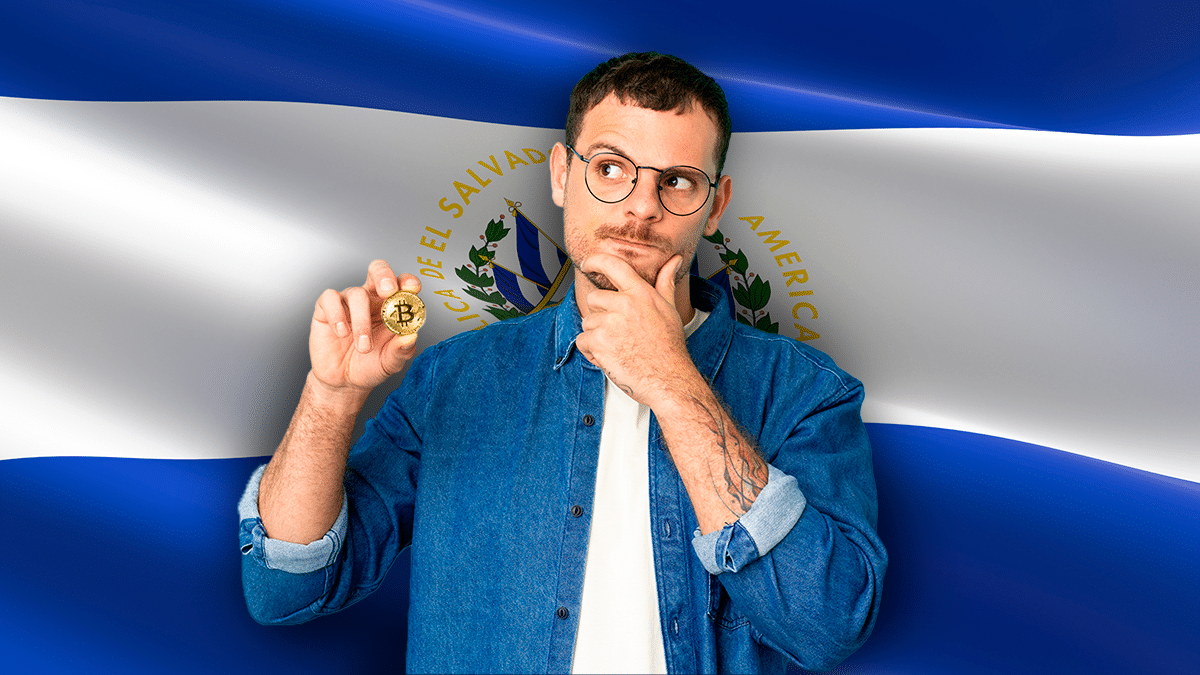
El Salvador is far from a mass adoption of bitcoin, according to these data
- Regulations
- May 15, 2022
Key facts:
-
Greater financial inclusion continues to appear on Bukele’s to-do list.
-
The Chivo Wallet is not used to pay taxes, nor to receive remittances.
The mass adoption of bitcoin (BTC) is not a reality in El Salvador, a country that declared the cryptocurrency as a legal tender asset seven months ago. Its inhabitants prefer to pay with cash dollars, as revealed by a survey in which almost 2000 Salvadoran households participated, whose residents were interviewed face to face.
A study by the National Bureau of Economic Research (nber) it probes the level of acceptance with which bitcoin has penetrated the Salvadoran population, although he makes the caveat that the survey resource was necessary due to “the limited access to data that the government offers to anyone wishing to study a widely debated phenomenon”, such as the Bitcoin Law of El Salvador.
“Access to the data poses a challenge since the government of El Salvador only reveals selected information and no details through the president’s Twitter account. So, to overcome this challenge, we conducted a nationally representative survey to generate data that would otherwise be unattainable,” the report reads.
The survey data indicate that more than two-thirds of Salvadorans, i.e. 68% are aware of the existence of the government Bitcoin wallet, the Chivo Wallet, which was developed by Nayib Bukele Executive to promote the adoption of cryptocurrency.
However, not everyone who knows the application has tried to download it, although it there was a time when the population was more willing to use the Chivo Wallet. This was in September last year, when the download of the application granted a bonus of USD 30 per provision of the Bukele government.
The main reason why users are they expressed interest in the Chivo Wallet it was precisely to receive the reward that the government handed over to each person who registered on the platform. As a second important reason, Salvadorans mentioned the contactless nature of the payment system, as the report adds.
Some of the users used the bonus to pay expenses, while 20% of them have not used this benefit. It is not clarified in the document, but apparently these people would be blocking their BTC.
So far in 2022, “there have been practically no downloads,” the report notes. This makes it clear that the main driver of the alleged adoption from the “Goat” purse was the bonus given by the Executive.

Is there greater inclusion with bitcoin in El Salvador?
Seven months after the declaration of bitcoin as legal tender in El Salvador, greater financial inclusion continues to appear on Bukele’s to-do list.
Before the adoption of cryptocurrency, more than 70% of the country’s inhabitants were unbanked, but so far things have changed little, because not everyone enjoys the benefits of a decentralized payment system, as Bitcoin is.
The constant failures that the government wallet has presented is the main reason that Salvadorans expose for not downloading it, so they prefer to pay for their services and purchases with cash.

In any case, they are young men, bankrolled, with a certain level of education and with a mobile phone with Internet access, who are more likely to use the government purse.
The authors of the report add that they tried to contact multiple government entities to receive more information about the Chivo Wallet, but their attempts were unsuccessful.
As a conclusive fact, the report adds that “the average amount of payments and transfers, both sent and received, is slightly higher in dollars than in bitcoin.” It means that, in general terms, active users of Chivo Wallet use dollars more often than bitcoin.
Are remittances transferred or taxes paid with bitcoin?
The majority of Salvadorans surveyed said that they are not paying their taxes with bitcoin through the Chivo Wallet. Neither is the government wallet used to receive remittances from abroad, although 8% of the participants in the survey said that they have used the application to transfer or receive remittances in dollars.
The data in the report coincides with those published by CriptoNeticias last month, when it reported that the family remittances that are sent in bitcoin to El Salvador, reached their lowest level in February of this year.

In short, the authors of the study point out that the main reasons why Salvadorans are not adopting bitcoin it’s because they don’t understand it yet, they say she doesn’t trust him. Also because they believe that cryptocurrency is not accepted by many companies or because the price is volatile. They also point out that it involves high transfer fees.
